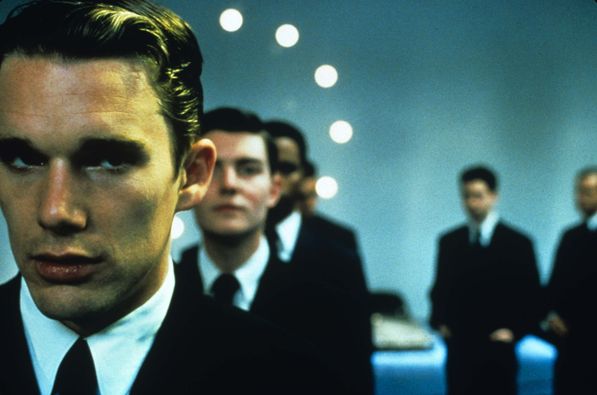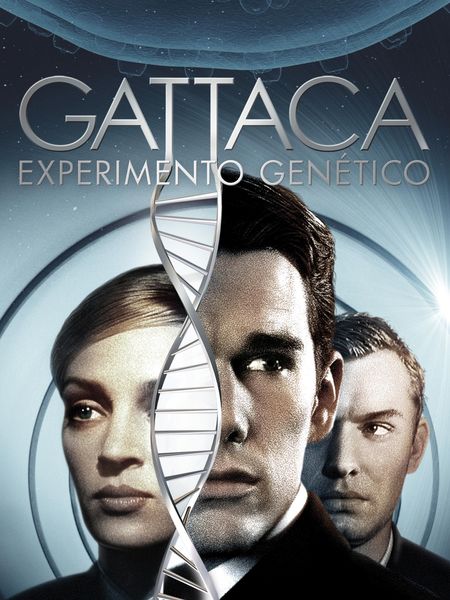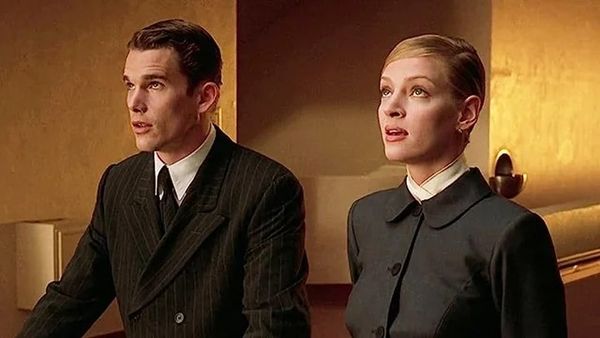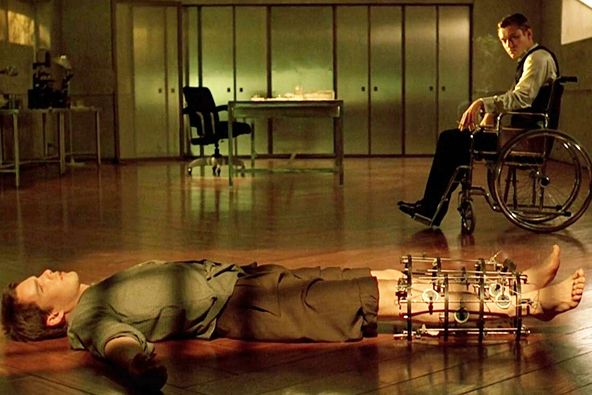Gattaca (1997)

Gattaca, directed by Andrew Niccol and released in 1997, is a thought-provoking science fiction film that explores themes of genetic engineering, identity, and the human spirit. Set in a dystopian future where society is stratified based on genetic makeup, the film stars Ethan Hawke as Vincent Freeman, a man conceived without genetic enhancement who dreams of traveling to space.
In this future world, individuals are classified by their DNA, which determines their social status, career opportunities, and even their perceived worth. “Valid” individuals, who are genetically engineered for optimal health and intelligence, dominate society, while “In-Valid” individuals like Vincent face discrimination and limited prospects. Despite being deemed inferior, Vincent is determined to defy the odds and pursue his dream of becoming an astronaut.

To achieve this, Vincent adopts the identity of a genetically superior individual named Jerome Morrow (played by Jude Law), who has suffered a tragic accident that has left him physically disabled. By using Jerome’s DNA and identity, Vincent secures a position at Gattaca Aerospace Corporation, where he must navigate the challenges of living a lie while constantly fearing exposure.

The film’s narrative is rich with tension as Vincent’s journey unfolds. The exploration of identity is central to the story, raising questions about the nature of destiny and free will. Vincent’s struggle against a society that values genetic perfection over individual merit highlights the dangers of eugenics and the ethical implications of genetic engineering.

The cinematography, crafted by Sławomir Idziak, is striking, characterized by its sleek and minimalist aesthetics that reflect the sterile environment of the Gattaca corporation and the broader society. The use of color and lighting enhances the film’s themes, creating a visually compelling experience that reinforces the emotional weight of the narrative.

The score, composed by Michael Nyman, adds an additional layer of depth to the film. Its haunting melodies evoke a sense of longing and aspiration, perfectly complementing Vincent’s journey as he strives for his dreams against overwhelming odds.
Gattaca is also notable for its exploration of the relationships between its characters. Vincent’s romance with Irene (played by Uma Thurman), a fellow employee at Gattaca, adds emotional complexity to the story. Their connection is built on shared aspirations and the desire to overcome societal constraints, further emphasizing the film’s themes of love and acceptance.
Upon its release, Gattaca received critical acclaim for its intelligent storytelling and visual style, although it was not a major box office success. Over the years, however, it has grown in stature, becoming a cult classic that resonates with audiences for its relevant commentary on contemporary issues such as genetic engineering, bioethics, and personal agency.
In conclusion, Gattaca is a compelling and visually striking film that challenges viewers to consider the implications of a society driven by genetic determinism. Through its exploration of identity, aspiration, and the human spirit, the film serves as a poignant reminder that one’s worth is not defined by genetic makeup but by determination and the capacity to dream. As Vincent fights to assert his identity and achieve his goals, Gattaca invites audiences to reflect on the true meaning of success and what it means to be human.











